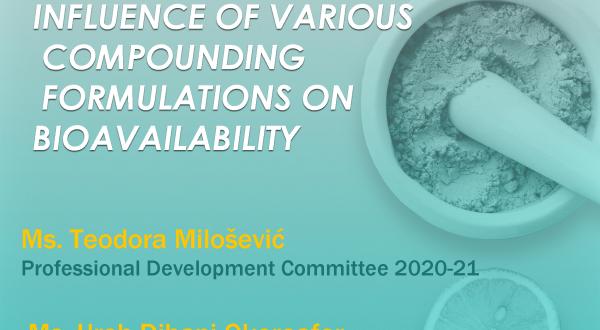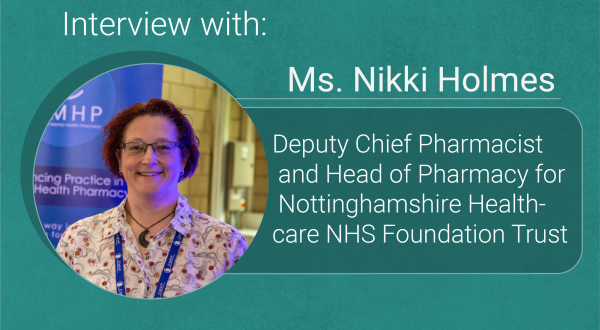
AfRO Shines A Light On Geoffrey Yambayamba
Pharmacist Geoffrey Yambayamba, from Tanzania, is no doubt one of the IPSF-AfRO alumni who left indelible footprints on the region. An expert in pharmaceutical research and development, Pharm Yambayamba continues to strive for an Africa with stronger indigenous pharmaceutical production. In this interview, AfRO SHINES A LIGHT on this father of two amazing girls and a great leader. You wouldn't be wrong to describe him as a chef_in_white coat either, only that we wonder why he would dare place Tanzanian jollof over Nigerian jollof. Do enjoy.
IPSF-AfRO: Hello, Geoffrey. I hope you are having a great day. Thank you for granting us this interview. Kindly introduce yourself to us. Do tell us about your interests and your work.
Pharm Yambayamba: Thank you for reaching out to me. I was a bit surprised that IPSF-AfRO still remembered my name. ? I am a pharmacist currently working at Laborex Tanzania Limited, a branch of Eurapharma Group, as operations manager and company pharmacist. Also, I have been serving as the Executive Secretary of The Pharmaceutical Society of Tanzania (PST) since 2014. I suppose in the 2020 elections, I will retire and let my fellows take over. I grew up with interests in research and development, so pharmacy was a perfect profession of choice for me and I have no regrets at all.
IPSF-AfRO: Interesting! ? I see you didn't have a hard time choosing pharmacy, unlike some of us who were not very sure. ? Why pharmacy? What was the major influence behind your choice of becoming a pharmacist?
Pharm Yambayamba: It was not a hard time at all. I think I was lucky enough to get the right information at the right time. The pharmaceutical history of Tanzania is very interesting, but the profile of the pharmacy profession back then indicated a high demand for personnel. My reasons were almost the same as those of the average student: I wanted to be part of this profession, I wanted to be the change and of course, spread the change to our neighbors. When you look at it in detail, you see a pharmacist as a gateway to the better health of a patient, the very final healthcare provider who will guide the patient to recovery by providing the product required (medicine) and education on how the product will perform better results (profession behind the product). We are the silent and sometimes forgettable profession, but we make a lot of noise in people's lives and in healthcare systems. I just loved that, being part other people's well-being is such a rewarding experience.
IPSF-AfRO: Amazing! What was growing up like? I mean, family, education, influences that have shaped you into the role model you are now.
Pharm Yambayamba: I grew up in very competitive streets. Our brothers and sisters lived, showing us that opportunities were never meant to pass by. We grabbed them and kept looking for new ones. I am the first born in a family of five children. I had my primary and secondary education in my hometown. My A-level school was a bit far from my hometown, I had to leave my family to start a new life at school. My school had the most brilliant students I ever met. It changed my perspective and way of living, it was at that moment I had to choose my career path. I got involved in personal development and change making. I joined a lot of local and international youth forums which impacted me in a great way. It was at that point that the thought of pharmacy came to mind and I sought advice from those who said a lot about it. The interest to be part of various youth initiatives continued to be a part of me. I obtained my bachelor's degree in Pharmacy at St. John's University of Tanzania in the central part of Tanzania.
IPSF-AfRO: You've been serving as the executive secretary of PST since 2014. 6 years is a long time. I'm sure you have done a fantastic job so far. What were your achievements as the executive secretary of PST?
Pharm Yambayamba: I joined PST when I was still a pharmacy student. I believe in teamwork, so I am short of words to detail what I have achieved as executive secretary. However, I am responsible for all correspondence of the society on a daily basis. I am particularly proud of the link that I established between TAPSA (Tanzania Pharmaceutical Students Association) and PST, and the reputation of the society to international organizations such as UNICEF and WHO. We have involved pharmacists, through the society, in establishing policies which guide our healthcare system. All these achievements occurred, thanks to the senior professionals I have served under ever since!! While in the university, I served as the chairman of Standing Committee on Local and International Relations. I later became the President of TAPSA, which then extended my responsibilities as the IPSF-AfRO Regional Project Officer and then, I became the Secretary of IPSF-AfRO. This actually gave me an opportunity to understand our region, and we worked tirelessly to make the region shine. There might not be many records but we are proud of whatever is happening now. I still remember all the meetings, the people and the places we visited. What I am not sure of is running for the position of executive secretary of The Pharmaceutical Society of Tanzania (PST) again. I think it is time I allowed young professionals to come on board and lead us through. It has been such a good experience, no complaints at all, but I think it is time for a new challenge!!
IPSF-AfRO: Interesting! I see that you are grounded in IPSF activities. It's great to see how you grew from a young boy in your hometown, to a leader on the African front, through pharmacy. Do share how you got introduced to IPSF activities?
Pharm Yambayamba: I met a friend of mine in 2009, who was the former chairperson of IPSF-AfRO back then, Pharmacist Bedan Maina. I invited him to our TAPSA function in Dodoma. He told me stories about IPSF. I eventually reinstated TAPSA's membership to IPSF right away. Then, we started all the IPSF-AfRO movement together, and we did our first pilot African Pharmaceutical Symposium (AfPS) in Nairobi. It was successful. Our movement brought on board colleagues from Zimbabwe, Uganda, Kenya, Ethiopian, Rwanda, Tanzania, South Africa, Ghana, Nigeria, Algeria, Tunisia, Namibia, Malawi, Congo, Ivory Coast and Cameroon. The region grew fast and the second AfPS was held in Algeria, later on Tanzania in 2013. That was my best experience in IPSF ever. I think IPSF is the best platform which all young pharmacists should not miss. You learn life changing skills such as: leadership, resilience, financial management, team building & management, focus, and then you become the professional the world is demanding now!!
IPSF-AfRO: As an active leader in TAPSA and PST, what advice do you have for pharmacists and pharmacists-in-training with regards to active participation in their pharmaceutical associations and other platforms for personal and professional development?
Pharm Yambayamba: Most of young pharmacists don't see themselves as leaders, so they don't want to get involved in associations! They're shying away from their responsibility, yet they're demanding better future in the pharmacy profession. You will never enjoy the changes that you were never involved in, rather you will become a slave of the changes that your colleagues have made. Be a part of the game, play your role and let the brilliant brain of yours table the ideas that will be challenged and then customized to fit the changes we are looking for. No one is perfect, yet every one of us is special in his/her own way. This cultural diversity is what makes the world a better place for living. Our profession is a multidisciplinary profession, don't dwell on pharma books only. Where do you learn communication, if not in associations and through different interactions? Where do you learn listening skills if you rarely get involved in conversations? How would you lead if you have never been a follower? These are a few questions I would pose to most interns and pharma students who do not get involved in their local associations and IPSF. I am among the few pharmacists who can travel the world and be sure of friends and colleagues wherever I go. You don't find these friends by shying away from your responsibilities in local pharma associations, as they will eventually expose you to the international professional platforms.
IPSF-AfRO: These are very thoughtful questions you have pointed out, Geoffrey. It's great to see you practice in the research and development space. This is a field where we need more African pharmacists, especially for the purpose of increased indigenous pharmaceutical production. How do you think we can attain the Africa of our dreams with regards to indigenous pharmaceutical production?
Pharm Yambayamba: Well, this question is tough. I have been asking myself since I joined the School of Pharmacy at St John's University of Tanzania. I couldn't help but take a step further to ask the Dean and the university's DVC (Deputy Vice-Chancellor) for Finance and Planning. The feedback was "What do you think should be done?". I found that the basic need for self-reliance on medicine supply in Africa is actually founded on the need for established research and development (R&D) laboratories. This is where drug design will take place. In these labs, pharmacognosy will serve its purpose, great discoveries will emerge and new innovations will be birthed for local pharmaceutical production. Which continents do you know are most blessed with diverse medicinal plants? Isn't Africa one of them? I shared my dream of establishing a R&D lab with my university. A lot of steps were put in place. I then came to learn the challenge facing most African young professionals (this may not be true to some of our colleagues reading this), and that is access to financial resources to scale one's dream. This challenge might be the hindrance to unlocking most of our dreams, however there is always a solution and my charge to young pharmacists is that the solution is within their reach despite where they are!
IPSF-AfRO: I agree that ours is a silent and almost forgettable profession. This is more reason why Pharmacists need to be more outspoken about the work we do. When it comes to drug discourses, I see rather few pharmacists at the forefront. Many research articles on drug pharmacokinetics and pharmacodynamics which I have read were written by non-pharmacists. This makes me question our acclaimed role as drug experts. How can pharmacists do better such that we can truly be regarded as the drug experts which we claim we are?
Pharm Yambayamba: Interesting question, I want to be brief on this ?. We shouldn't let people take away what is ours! Document whatever you are doing, share with colleagues. Let the world understand the details of our profession. From supply chain to community pharmacy services, from academia to administration, from research to drug development, let's be proud of whatever achievements we have. The world will amplify our work and we will be heard loud and clear!!
IPSF-AfRO: What's the COVID-19 situation like in Tanzania?
Pharm Yambayamba: We're taking all the possible precautions. I hope the situation will be back to normal in a short time to come.
IPSF-AfRO: What are your projections for Africa post-COVID?
Pharm Yambayamba: It is hard to project, however it looks like most African countries have managed to control the situation: Not many deaths compared to other parts of the world. The best we can do is to make sure the awareness regarding preventive measures is spread to our people. I believe pharmacists have a key role to play here, especially when people visit pharmacies!! It may take some time to discover the vaccine, but we pharmacists should be of help and hopefully, we'll bring hope and smile to the people again!!
IPSF-AfRO: Today, May 25, is the annual Africa Day as celebrated by the African Union. What do Africans need to do, in order to attain the Africa of our dreams?
Pharm Yambayamba: It's at this time Africans have to remember and appreciate the great work done by our heroes past. When Ghana got her independence in 1957, it served as an inspiration to other African countries to fight against colonial rule, but thereafter we still had to fight against diseases, ignorance and extreme poverty among Africans. To address that, we really need to promote African unity, deeper regional integration and to recommit Africa to a common destiny. From north to south, east to west of Africa, the future of this continent lies in our hands! Stopping violation, empowering our communities with all the necessary infrastructure and services, stopping fights and promoting democracy should be our priorities!! This is a reason why I would advise young professionals to always get involved in associations and communal activities, that's where we cultivate leaders.
IPSF-AfRO: Very well said, Geoffrey. Thank you so much for your insightful responses so far. So let's get a bit less serious. ? Which of the following describes you or which do you prefer?
Hot Weather vs. Cold Weather? Hanging out with friends or Having some alone time? Cooking vs. Eating out? Books vs. Movies? Nigerian jollof or Tanzanian jollof? Facebook or Instagram?
Pharm Yambayamba: ? I prefer cold weather!! I spend most of my time working with my team, following up on projects and analysing progress, so hanging out with friends it is. I prefer cooking ?. Books vs. movies ?. . . I do a lot of books, but I am quite selective when it comes to movies. Nigerian jollof or Tanzanian jollof ?. . . I think Tanzanian is the best, you should prove me wrong when I visit Nigeria. Facebook vs Instagram. . . Facebook was my first social network, I would still prefer it, however my accounts are linked.
IPSF-AfRO: Tanzanian jollof? ??? I'm sure you're just trying to support your own. ? I've never had Tanzanian jollof but I'm sure it stands no chance on the charts. ?
Pharm Yambayamba: I should invite you to Tanzania. I'm sure you will take back your words. ?
IPSF-AfRO: ? ? If you say so. Hopefully, I'll visit Tanzania someday. You cook? Interesting. Which three delicacies are your best?
Pharm Yambayamba: Pilau, Mseto (famous traditional rice) and Ugali with roast meat are my favorites!!
IPSF-AfRO: Nice. ?? I look forward to having a taste someday. How do you unwind? What do you do outside of work?
Pharm Yambayamba: Outside work, I am a husband and a father of two beautiful daughters. My wife is a very close friend of mine, and now we've got two more friends, Gabriella and Gianna. They keep us busy after work. I listen to their stories and we read together, go out for a walk, especially with Gabriella. Gianna is only a month and three weeks. My wife is an expert in accounting and international business, she teaches me those stuff. So I am a student after work, a father and husband at the same time. ? Outside my profession, I am an entrepreneur. My wife and I run a few projects. We share ideas and manage a team. We are involved in: agriculture, food processing, livestock production, retail trading, pharmacy and consulting, as well as financial management advisory. In my free time, I do space driving, watch movies and I would catch up with few friends to drain their minds a bit ?. I call them moving libraries. I also have few seniors from whom I learn a lot, I would definitely set an appointment to go and meet them for advice and guidance, especially on matters related to the profession, and business in general.
IPSF-AfRO: Awwwwn. . . It's so cute ?? to picture you in the light of a daddy. I have no doubts you are doing a fantastic job. Wow! It has been a truly incredible interview thus far. Thank you so much for sharing your thoughts with us. I really had a great time interviewing you, Geoffrey. ? Thank you so much for your time. IPSF appreciates you. ??
Pharm Yambayamba: Thank you so much too. Thanks for reaching out to me. I wish you all the best. Do take care of yourself.
It was a delight to interview Pharm Geoffrey Yambayamba. We hope it was a delightful read for you as well. This interview was conducted by Taiwo Olawehinmi, on the auspices of the IPSF-AfRO Media & Publications Subcommittee. Keep thriving. Viva la IPSF. Viva la Pharmacie.



